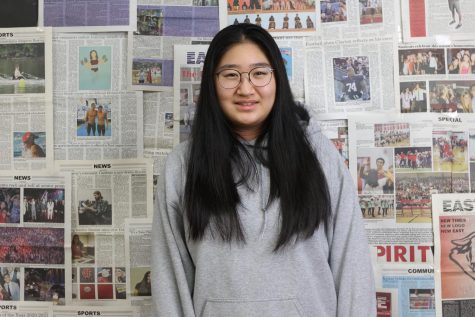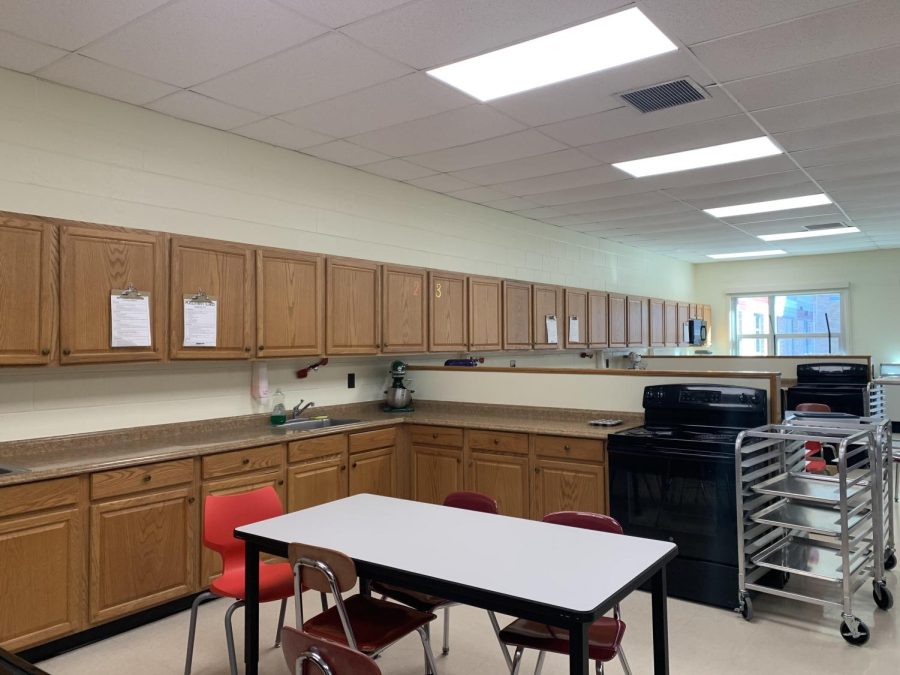Bond referendum coverage: East expresses concern about potential reconstruction regarding elective classrooms
The cooking classroom at East is equipped with an oven and countertop.
As the bond referendum goes through the approval process in the Board of Education, concerns have arisen within the East community.
One concern of East students and teachers is that the reconstruction of schools will lead to a loss of East’s F-wing. F-wing is a hallway where elective classes are taught; therefore, many classrooms in this hallway have features that are specialized to that subject. For instance, the cooking classrooms have countertops, the robotics classroom has two levels for more space, and the journalism classroom has a recording room for podcasts.
Students and teachers are concerned how students who will take electives in the potential three to five-year period of reconstruction will be able to learn as students do today, fully equipped with specially-designed facilities.
Superintendent Dr. Joe Meloche believes that teachers will be able to work with the potential future situation to provide the best possible learning environment for their students.
“One of the great benefits that we have in Cherry Hill is we have such incredibly talented staff members who’ve been adaptable,” says Meloche.
Meloche also hopes that the new facilities will be able to provide an adaptable learning environment for a changing future. Meloche explains that future classes may require different needs and he is hoping the bond referendum will be able to equip the needs of the next few decades of classes.
Meloche says, “When we look at doing this work in 2023 through 2028, we know that it’s going to need to be around and be usable in 2050.”
In addition, Meloche specifies that rooms such as the robotics classroom may evolve to include other STEM programs.
“We don’t want to have something that so constructed that it is just for single-use and so focused on a single-use that fifteen years from now may not usable again,” says Meloche in regards to elective classrooms.
However, in regards to the potential three to five-year period when reconstruction may happen at East, ambiguity still exists on how students taking elective classes will learn without facilities. It will depend on how much of the potential reconstruction can occur during the summer, which is currently unknown.
Meloche says, “If [elective classes] have to be shifted to other places for a time period while work is going on, then that will take place.”
Lastly, Meloche clarifies that elective classrooms will be preserved after the potential reconstruction with the addition of an adaptability aspect in each classroom.

Vivian Rong is a senior and the online editor-in-chief for Eastside this year. When she's not writing stories for Eastside Online, she enjoys daydreaming...

